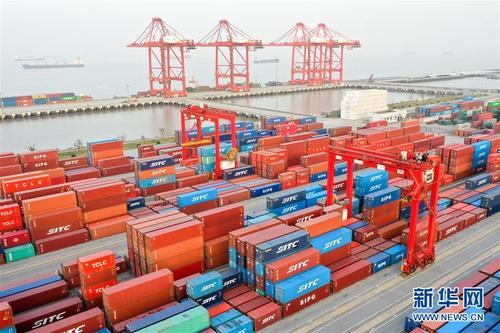Amid global trade uncertainties caused by the COVID-19 pandemic, cross-border e-commerce has become a major driving force for stabilizing global trade thanks to its advantages like online transactions and “contactless” delivery.
Global trade is rebounding much more quickly this year than it did after the 2008 financial crisis, lifting parts of the global economy, making cross-border e-commerce become a more remarkable sector in various countries.

(Photo: Xinhua)
Although international trade still remains below pre-pandemic levels, it has snapped back robustly. It has recovered about half of this year’s historic loss by June, according to the Kiel Institute for the World Economy, a German think tank.
Research firm IHS Markit said that new export orders are growing in 14 of 38 economies in August, compared with just four in June, while others are trending in the right direction and could start seeing growth soon.
According to global freight volume data, shipping activity in some other U.S., Asian and European ports has also normalized.
Cross-border e-commerce has become an important part of a new development paradigm with domestic and international circulations reinforcing each other, which China aims to foster, said Long Yongtu, a consultant with China Association of Trade in Services, who is also China’s former vice trade minister.
China will continue to expand imports to meet diversified needs at home, driving the recovery of the world economy, Long said, adding that the country will give full play to the role of cross-border e-commerce in stabilizing foreign trade and promoting exports.
As one of the important measures to cope with the current complex external environment, it’s also a promising area in the process of fostering a new development paradigm, said Dang Xiaohong, deputy head of the Department of Port Control of the General Administration of Customs (GAC).
The GAC will continue to ensure regulatory processes and provide strong services for the sector to promote consumption and expand the domestic market, Dang noted, adding that the administration will review experiences with trial reforms in cross-border e-commerce B2B export and apply them nationwide.
Tang Min, a consultant of the State Council, suggested that China should further improve the equity financing mechanism for small and micro enterprises and conduct more training programs for cross-border e-commerce professionals.
Industry insiders also shared that it’s necessary to enhance cooperation and formulate international rules on cross-border e-commerce.


